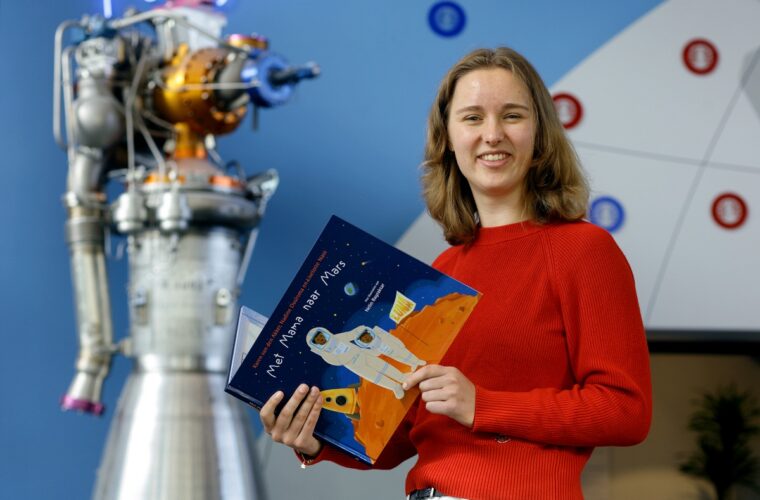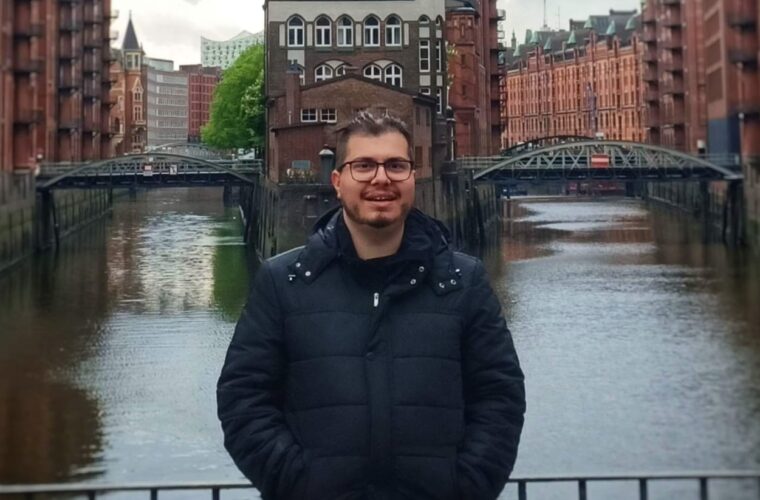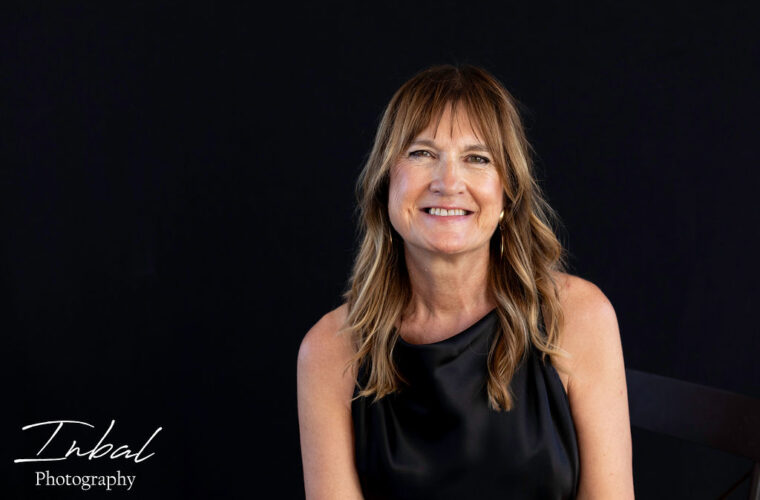Meet the talent: Martina Dimoska, Founder and President ISA
Place of residence: I split my time between North Macedonia and the United States, travelling frequently for research collaborations, projects, and events.
Position: Founder and President of the International Space Alliance (ISA), Analog Astronaut, Published Researcher, and Engineer.
Please describe a day in your life:
My days are never the same, constantly evolving; they are dynamic and interchangeable.
Every day is different, but if we’re talking about traditional office hours outside of Analog Astronaut Missions, travel for presenting work at conferences, or as a keynote speaker, that day is pretty standard and adept to U.S. Corporate Culture.
It is filled with a mix of meetings, project management, and research. I start the day by reviewing project updates with my team and working on space tech innovation grants, particularly focusing on developing regions where we intertwine space sustainability. Afternoons are often spent mentoring start-ups and mentees, interviews, and planning materials for workshops and events. I also dedicate time to my research and my collaborative teams, with which we publish regularly. It’s a busy but fulfilling balance of leading ISA, preparing for Missions, and staying deeply connected with the global space community.
I multitask in my free time, like eating my lunch, chatting with close ones overseas, working out, listening to a podcast, etc.
How many projects are you currently working on? Please describe them:
How many projects are you currently working on? Please describe them:
I’m involved with too many activities, and when it comes to research, I am a part of three research papers that will be presented at the upcoming International Astronautical Congress (IAC) in October, held in Milan by the International Astronautical Federation (IAF). I am closely following the research coming from all of the Analog Missions I’ve been a part of, and I am also helping design new research proposals and projects and onboarding potential Analog Astronauts.
When it comes to ISA, we recently won an OSCE Grant, we have the NASA Space Apps Challenge Mountain View at NASA Ames Research Center and NASA Space Apps Challenge Cleveland at NASA Glenn Research Center, and we are collaborating on a few projects with several institutions and universities that we should publish soon. ISA is now present both in Macedonia and California, and our team is dedicated to bringing space exploration to everyone, especially the underprivileged regions!
My mentorship spans multiple programs, along with my speaking engagements and social media involvement. While I strive to stay as present as possible, I believe this is best approached as a team effort rather than relying on a single individual. Hopefully, this will happen sooner rather than later.
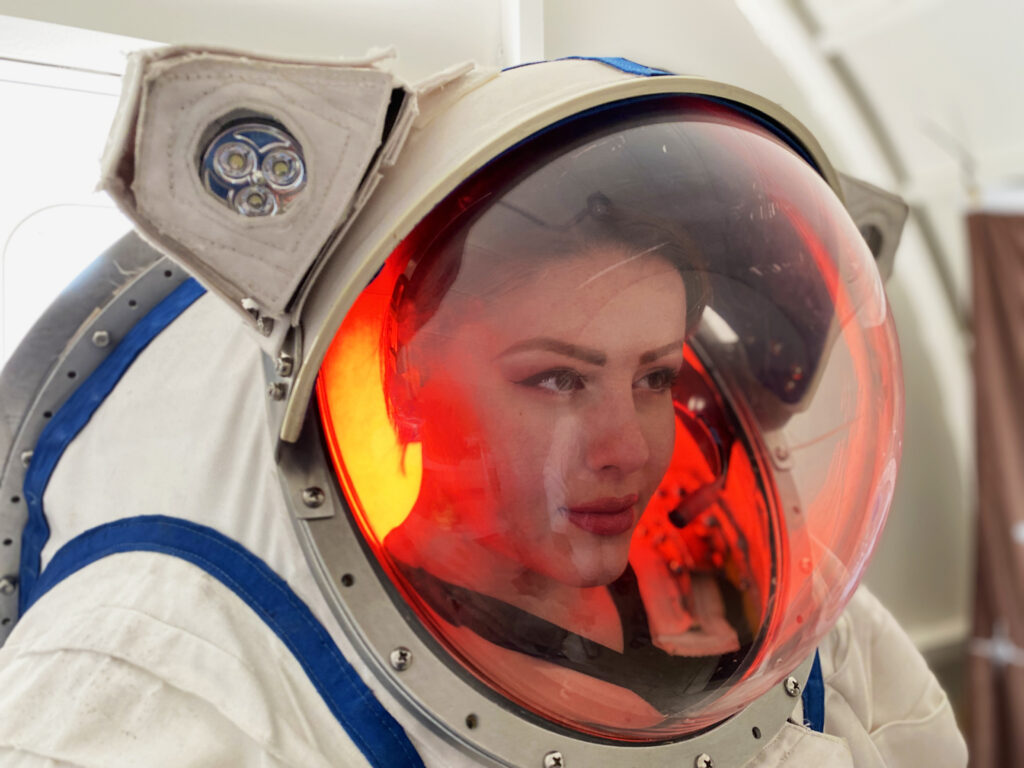
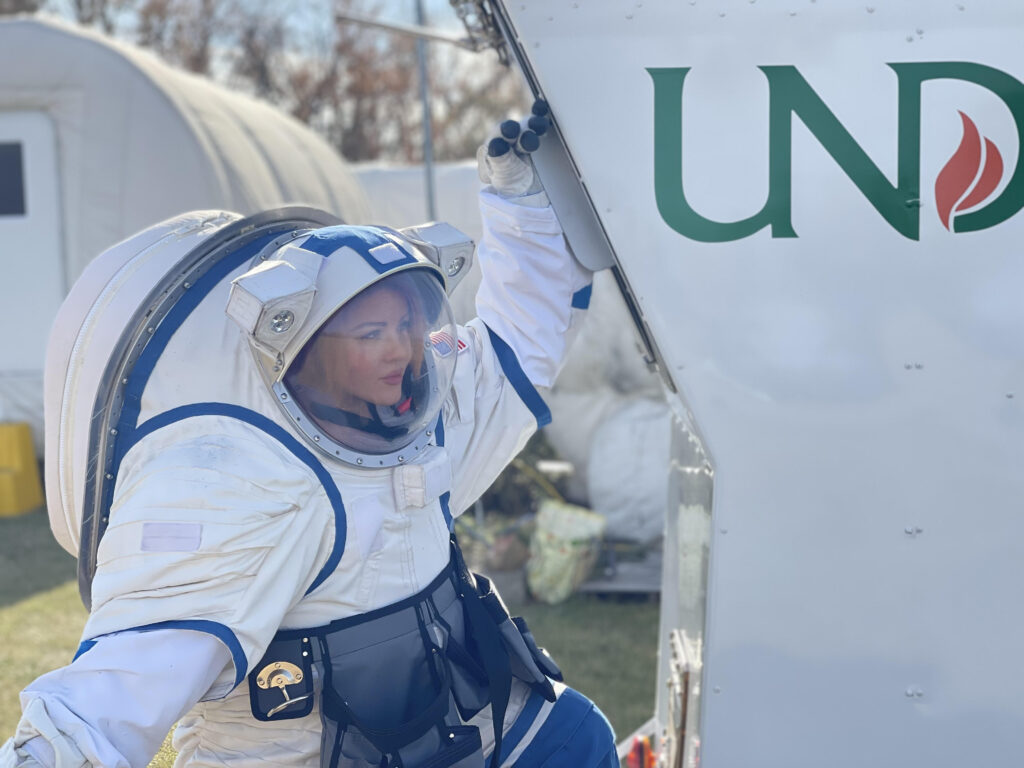
In your opinion, who is the most influential person/company in the world of technology these days?
In my life and many others like me, the most influential people were fellow women.
When it comes to the Space Sector, the most influential woman running SpaceX alongside Elon Musk is Gwynne Shotwell, the company’s President and Chief Operating Officer (COO). She has been with SpaceX since 2002 and plays a critical role in managing the company’s day-to-day operations, including overseeing its growing commercial launch business. Gwynne Shotwell is widely credited for driving SpaceX’s success, managing client relationships, government contracts, and overall operational execution. Under her leadership, SpaceX has achieved major milestones like launching astronauts to the International Space Station (ISS) and developing the Starship program. She is beyond inspiring, and I hope to meet her one day!
When it comes to the commercial space sector, where I am deeply invested, another inspiring woman in charge of human spaceflight and lunar payloads at Blue Origin is Audrey Powers. She is the Vice President of New Shepard Mission and Flight Operations at Blue Origin, overseeing the company’s human spaceflight operations, including missions aboard the New Shepard suborbital rocket. Audrey Powers played a key role in Blue Origin’s crewed flights, including its first successful human spaceflight missions. She has also been involved in the company’s broader lunar exploration efforts, such as developing the Blue Moon lunar lander. Powers has a background in engineering, law, and aerospace, and she has been instrumental in guiding Blue Origin’s mission of opening space for more people.
A personal friend and a fellow AIAA ASCEND member of our cohort is Carolyn Overmeyer, the Director Orion Chief Engineer at Lockheed Martin. Carolyn plays a key role in advancing Lockheed Martin’s space exploration and defence initiatives. Her contributions span various cutting-edge projects that drive innovation in the aerospace industry. Carolyn’s leadership, expertise, and dedication are truly remarkable, and she continues to inspire many with her work in shaping the future of space exploration. I’m proud to know her and look forward to seeing all the great things she’ll continue to achieve!
There are many more incredible women I look up to, and this is just a tiny portion of the remarkable achievements of womanhood.
If you could pick one app/product/project existing now that you wish you were involved in, what would it be?
If I could pick one existing project I wish I were involved in, it would be the commercial human spaceflight programs by SpaceX, Axiom Space, Blue Origin, or similar emerging actors. Being a part of these groundbreaking initiatives would align perfectly with my passion for advancing human space exploration. SpaceX’s Crew Dragon missions, which have already taken astronauts to the International Space Station (ISS) and beyond, and Axiom Space’s mission to build the first private space station, both represent the future of accessible human spaceflight. Contributing to these programs would mean directly impacting the next era of space exploration, enabling more people to experience space, and developing sustainable solutions for long-term human presence in space.
If the Balkans sees a fellow Balkan woman deeply invested in the forefront of innovation when it comes to human spaceflight, that can bring a pivotal change for the entire region.
How do you see technology evolving in the next ten years?
While I can’t predict the future and play Nostradamus, I am actively working to make technology and space exploration accessible to everyone. In the next years, I envision a world where technology is more integrated into everyday life, empowering people from all backgrounds. I see greater public awareness and understanding of the benefits technology brings, especially in areas like space exploration, sustainability, and education. My goal is to contribute to a future where innovation is inclusive, and the advancements in space and technology benefit not just a select few but society as a whole.
In the next decade, I see technology becoming even more integrated into daily life, with breakthroughs in areas such as quantum computing and AI, which are integrated with space exploration. We will likely witness more commercialized space travel, autonomous vehicles, and widespread use of renewable energy systems. I will hopefully foresee a stronger focus on sustainability, which I am proactively contributing to, with technology trying to solve global challenges like climate change and resource scarcity.
What would you like the industry to look like in ten years?
I would love to see a truly inclusive and diverse tech industry where people from all backgrounds, especially underdeveloped regions, have access to education, opportunities, and resources to contribute to global advancements. In addition, I hope to see a greater focus on ethical technology and sustainable solutions that benefit humanity and our planet.
I advocate for access because people coming from the Balkans have none. When we analyze the US, we see that Big IT and tech leaders such as Google can hire talent in the US and sponsor work visas because it’s a private tech company with access to specific visa programs like H-1B.
The US space sector, on the other hand – both private and governmental – faces stricter regulations due to national security and ITAR laws, so if you’re not a US Citizen or Lawful Resident (Green Card Holder), you don’t stand a chance.
These restrictions limit hiring non-U.S. citizens for most positions, even as space-skilled talent is declining and in high demand. I truly hope changes in visa policies or security classifications would allow more foreign talent to contribute to space-related roles, particularly in the private sector.
What are the three characteristics you have that make you successful in tech?
If I can pinpoint three things that have been essential for my success, those are the following:
Perseverance—I never give up, no matter the obstacles. Most of the people who work with me know how creative I am in finding incredible solutions that might seem impossible but always work out.
Curiosity—My constant desire to learn drives me to stay ahead in a rapidly evolving field. We all have blind spots, and it’s important that we always grow and learn from mistakes, advance as people, and stay curious.
Collaboration – I believe in the power of teamwork and knowledge-sharing to create the greatest impact. This is the beauty of being human—embracing and truly understanding diverse people, cultures, and perspectives.
What is the most challenging thing you had to deal with during your career?
One of the biggest challenges in my Space Career is establishing a true Space Presence and pioneering space exploration efforts in the Balkans, a region without a developed space industry and a true mentality for it. Overcoming scepticism and a lack of resources while pushing for new opportunities in space technology is difficult, but I am determined to make it happen.
Another challenging aspect of my Space Career is navigating bias, especially as a young woman and an immigrant from a background without privilege and coming from a deeply honest, really direct, straightforward culture. I’ve often had to work twice as hard to prove myself in spaces where I didn’t have the advantage of connections or a familiar support system or because my passport wasn’t enough. Unlike a select few who may benefit from established networks or legacy opportunities, I’ve had to build my path from the ground up. While this has been difficult at times, it has also made me more resilient, resourceful, and determined to succeed. It’s taught me the importance of perseverance and how powerful it can be to break barriers and pave the path forward for others who may face similar challenges.
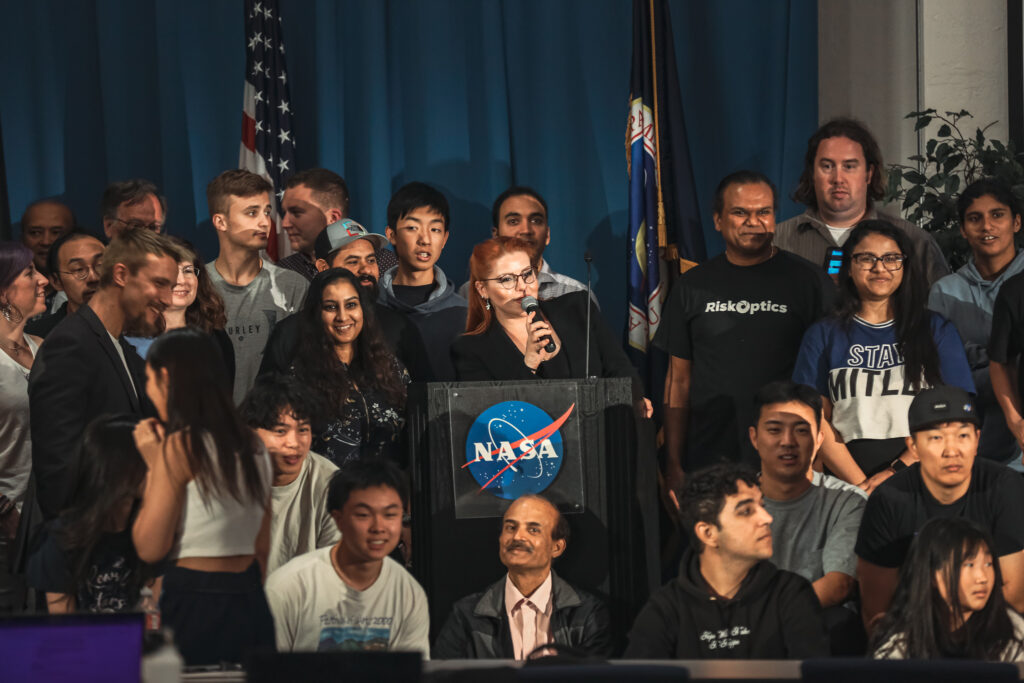
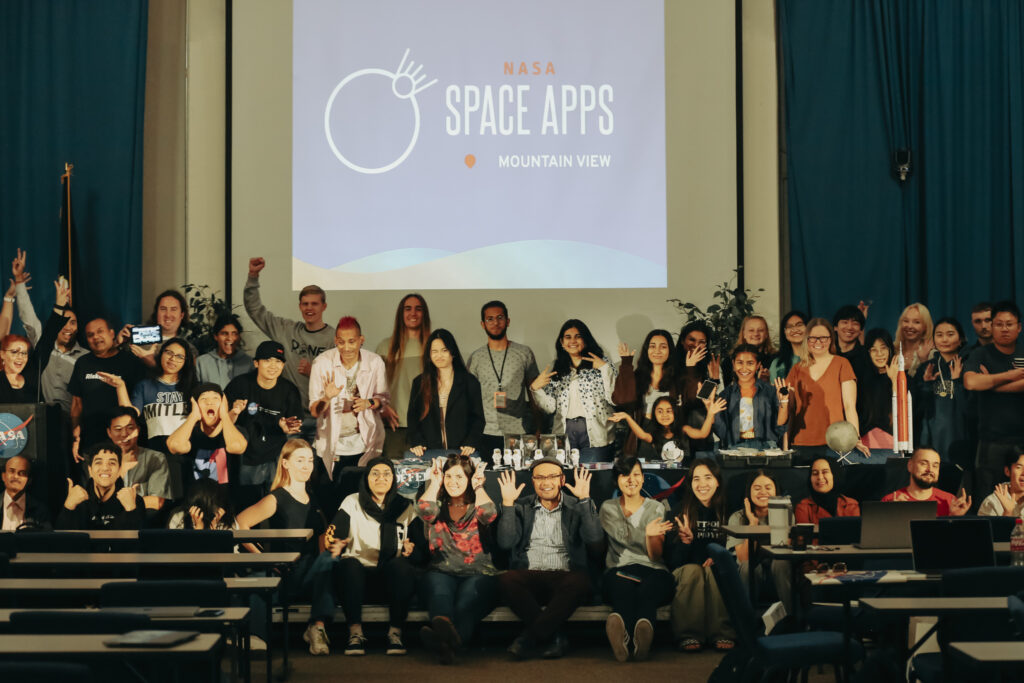
What is your greatest achievement up until today?
My greatest achievement is founding the International Space Alliance (ISA), an organization that empowers underdeveloped regions and promotes space exploration, sustainability, and education. ISA has grown into a global force for space innovation, bringing opportunities to many who wouldn’t have had access otherwise.
Additionally, putting Macedonia—my home country—on the global space map has been a personal triumph. Becoming the first female Balkan Analog Astronaut and proving that the seemingly impossible is achievable, especially for women in space-agnostic and underrepresented communities, has been incredibly fulfilling. It’s a message to fellow women that they, too, can break barriers and reach for the stars.
What is your next goal?
To fly to Space!
But aside from Human Spaceflight, my next goal is to expand ISA’s reach programs globally, inspiring the next generation of space pioneers.
I’m also working on a plethora of research and a lot of Human Spaceflight and Analog Astronaut mission preparations and training that will contribute to advancing humanity forward.
What tips do you have for people wanting to start in the tech world?
Stay curious. Keep learning and exploring new fields. Technology is constantly evolving, and so are novel positions in the ever-changing tech world.
• Be persistent – Challenges will come, but perseverance through them is key.
• Network – Building meaningful relationships with mentors and peers who can support your growth is essential. When you find your tribe, everything is easier, and life is more joyous and blissful!
• Focus on impact – Always think about how your work can solve real-world problems to make a difference, and with sustainability in mind, please!
If you could say something to your younger self, what would it be?
I was going to tell myself several things, but I would have probably started with these two:
Believe in yourself, and don’t be afraid to push boundaries. The path won’t always be clear, but trust that your passion and hard work will guide you where you need to be.
Don’t take criticism from someone you wouldn’t take advice from. How can you value criticism from someone who never went where you plan to go?
No one should be affected by criticism from those with a limited and extremely narrow mindset, lacking experience in a specific field and never fully understanding or familiarizing themselves with its nuances and complexities.
Which famous person would you like to have dinner with and why?
I would love to have dinner with Christina Koch. Her experience as an astronaut and her work on long-duration spaceflight missions is incredibly inspiring. I’d love to hear her insights on space exploration and overcoming challenges in extreme environments.
Where would you like to travel next?
I travel way too often, but to avoid becoming a ‘full-time’ nomad and living out of a suitcase, I try to limit my travels and only travel for work. Although I have been global, I have never really visited Asia. I would love to go to Japan. The country’s fusion of advanced technology and deep respect for tradition fascinates me, and I’d like to explore its space research and innovation centres. I’m also a Big Anime and Cosplay fan.
Do you have a person who influences or motivates you?
The people who influence and motivate me the most are the generations of women who came before me—those who sacrificed endured hardship, and fought for the opportunities that I am fortunate to have today. Their strength, resilience, and determination in the face of adversity inspire me to keep pushing forward for myself and the women who will come after me. I carry their legacy with me in everything I do, knowing their struggles paved the way for my successes. This deep sense of gratitude and responsibility drives me to continue fighting for equality, opportunity, and progress in every Space I enter.
What did you dream of creating/inventing/doing as a child?
I dreamed of creating and inventing things that could make a difference in the world around me. Growing up with a disabled sister in a community that often overlooked and undervalued those with disabilities, I felt a deep-seated need to be both a crafter and a problem solver. My experiences in this challenging environment fueled my creativity and drive to develop solutions that could bring attention and positive change to those who were frequently ignored or misunderstood.
What advice do you give to young girls who want to follow similar careers?
Mae Jemison, the first African American woman to travel in Space, once said: “Never be limited by other people’s limited imaginations.” And this is absolutely true!
Don’t let anyone tell you that you can’t pursue your dreams. Be resilient, surround yourself with an extremely supportive community, and believe in your own capabilities. Technology and space exploration need diverse voices, and your contributions are invaluable.

